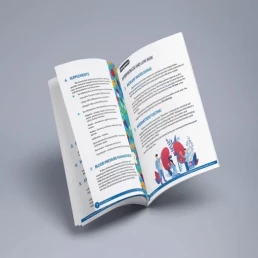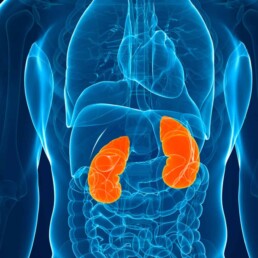Proton pump inhibitors (PPIs) are a group of medications that suppress stomach acid production. They work by suppressing the pump that produces acid in the stomach lining. These medications can be very effective and have a significant role in treating stomach ulcers in the acute setting. However, the long-term use of PPIs can be associated with various adverse outcomes. Observational studies demonstrated a link between using proton pump inhibitors and kidney disease. Here we will describe our favorite proton pump inhibitors wean protocol.
By Majd Isreb, MD, FACP, FASN, IFMCP
PPIs use is so common. I am confronted with patients on long-term PPIs every day in my practice. The indication ranges from acid reflux to a history of gastrointestinal bleeding. These medications are now available over the counter and relatively inexpensive.
Patients taking PPIs for a long time without a specific indication should be reassessed. However, gradual and careful de-prescribing should be considered for these patients under an experienced Integrative medicine provider.
Proton pump inhibitors wean Protocol
Remove triggers
- Foods, especially acidic: spicy, fatty foods, alcohol, caffeine, and dairy. Consider an elimination diet.
- Increased intra-abdominal pressure: Encourage weight loss and avoid tight-fitting clothes.
- Stomach over-distension: Encourage smaller meals and less fluid intake with meals. Slow down, chew food well and relax while eating.
- Prone position: Eat last meal 4-5 hours before bed, and place 4-6” blocks under the head of the bed (don’t prop on pillows as this can increase intra-abdominal pressure).
- Smoking: Stop.
- Stress: See “Rebalance” below.
Replace
- Vitamin/mineral deficiencies: Consider B12, magnesium, calcium, and iron. (Goal for B12 > 400 pg/mL. Measure RBC Mg, not serum Mg).
- More fruit and vegetables and fiber.
- Digestive enzymes if needed.
- Consider Swedish bitter.
- Consider MMC Restore from Gaia herbs.
Repopulate
- Consider testing for SIBO.
- Raw apple cider vinegar or other fermented food (sauerkraut) as tolerated.
- If signs/symptoms of small bowel bacterial overgrowth (bloating, gas, diarrhea, abdominal cramps) from poor digestion, consider probiotics (10-14 billion units daily, multiple species present).
Repair
- Add one or more of the following:
- Marshmallow Root Tea: up to 5-6 g daily or 5 mL tincture before meals.
- DGL: 1 chewable tablet (300-500 mg) thrice daily.
- Slippery elm: 1-2 tbs powdered root in water OR 500 mg caps OR 5 mL tincture three times a day.
- Chamomile: 1-3 g in tea, three to four times daily.
- Melatonin regulates gastric acidity by inhibiting excess acid formation and increases the tone of the lower esophageal sphincter, which makes sense. The body wants to keep acid in the stomach when lying down to sleep. Start with 1 to 3 mg daily one hour before going to bed.
- Throat Coat tea: Can be taken with meals (it contains regular licorice and may raise blood pressure).
Rebalance
- Decrease stress: Lifestyle changes, mind-body techniques, vagus nerve stimulation.
- Regular aerobic activity: but not right after meals.
- Consider other modalities: such as acupuncture weekly for 2-4 weeks.
Taper off the PPI slowly.
- The higher the dose, the longer the taper. Expect rebound symptoms.
- Start supplements as above two weeks before taper.
- Decrease the current PPI dose by 50% each week until the patient is on the lowest dose once daily.
- In 2 weeks, change to an H2 blocker (Pepcid, for example). If symptoms flare, you can alternate H2B every other day with PPI.
- After 2-4 weeks on H2 blocker, try stopping or weaning.
- After two weeks off the H2 blocker, try tapering off supplements.
- Continue lifestyle modifications.
If you are taking a PPI, please do not stop them suddenly, as this can lead to a severe rebound. Please consult with your provider before discontinuing a PPI. We highly recommend tapering PPI slowly under the supervision of a well-trained provider.




